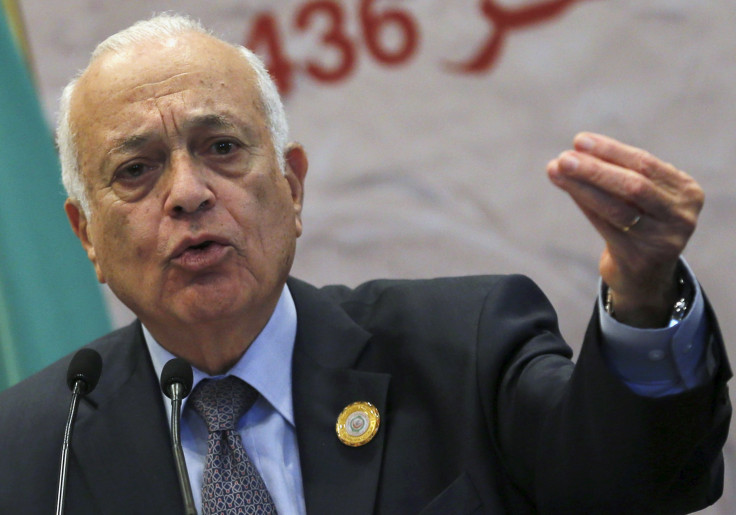Arab League Formally Announces Military Force To Counter Islamic Extremism, Foreign Influence

A group of Arab nations announced on Sunday that they had agreed to form a combined military force to counter Islamic extremism and foreign influence. At the two-day Arab League summit, leaders from 22 Arab nations spoke of the need to tackle “outside parties” and “foreign” powers, making thinly veiled references to Iran, which has been exerting its influence in Iraq, Syria, Lebanon and Yemen.
“The challenges facing our national Arab security are grave, and we have succeeded in diagnosing the reasons behind it,” Egyptian President Abdel Fattah al-Sisi said. He added that the meeting was “pumping the blood of hope in the arteries of Arab cooperation,” according to the New York Times.
Anonymous Egyptian officials told the Associated Press (AP) that the force would consist of 40,000 highly trained troops, and that they would be supported by fighter jets, naval vessels and mobile armor.
The agreement, which was approved as a draft resolution on Thursday, comes just days before a self-imposed Tuesday deadline for Western nations, including the U.S., to reach an agreement with Iran to restrict its nuclear program if it wanted the sanctions to be lifted. Saudi Arabia and other regional powers have indicated that they are forming the force, in part, to boost their own independent military power in the face of a perceived betrayal from Washington.
Ten nations, led by Saudi Arabia, are also currently carrying out airstrikes against the Houthi rebels in Yemen. The Shiite militants, who are believed to have received arms and training from Iran, have captured the country’s capital Sanaa and forced the internationally recognized President Abed Rabbo Mansour Hadi to flee the country.
Several nations, including India, China and Pakistan, have evacuated nationals from Yemen as it descends further into sectarian violence. The Houthi rebels and Iran have both criticized the airstrikes and called for an end to hostilities in the region.
A Saudi naval blockade has also been imposed on a critical strait in the region, although officials from Kuwait Petroleum Corporation said on Monday that tankers were being allowed to pass through unimpeded.
Arab League chief Nabil Elaraby did not indicate whether the proposed force would play a role in the Yemen conflict, but Egypt had earlier said that a ground invasion of Yemen would shortly follow the airstrikes, and Saudi Arabia has reportedly mobilized 150,000 troops. Elaraby said that the air campaign would continue until the Houthis were prepared to surrender and withdraw from government.
"Yemen was on the brink of the abyss, requiring effective Arab and international moves after all means of reaching a peaceful resolution had been exhausted to end the Houthi coup and restore legitimacy," he said, during the session’s closing remarks, AP reported.
© Copyright IBTimes 2025. All rights reserved.





















